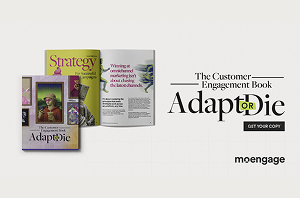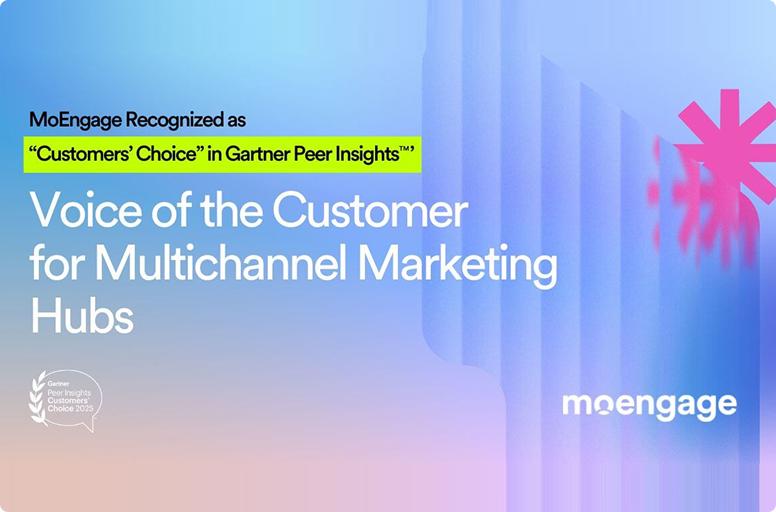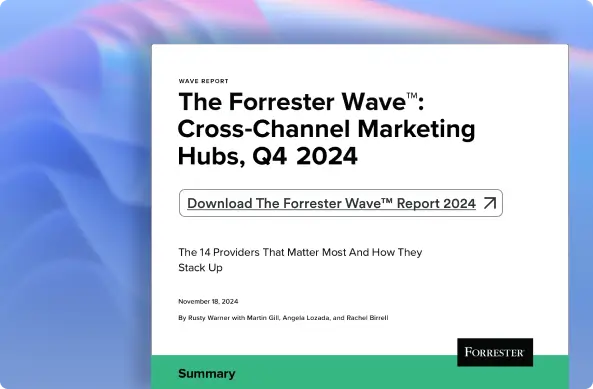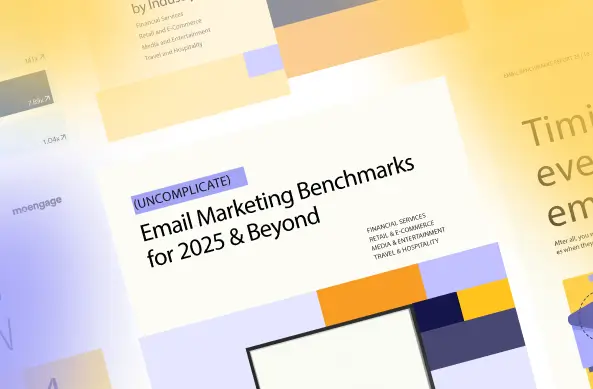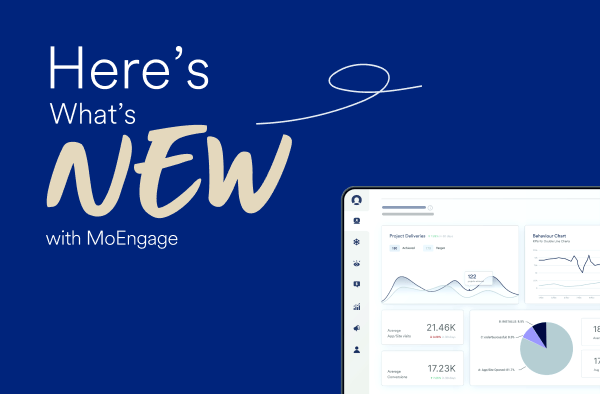Holiday Email Marketing: 7 Tips to Boost Your Sales
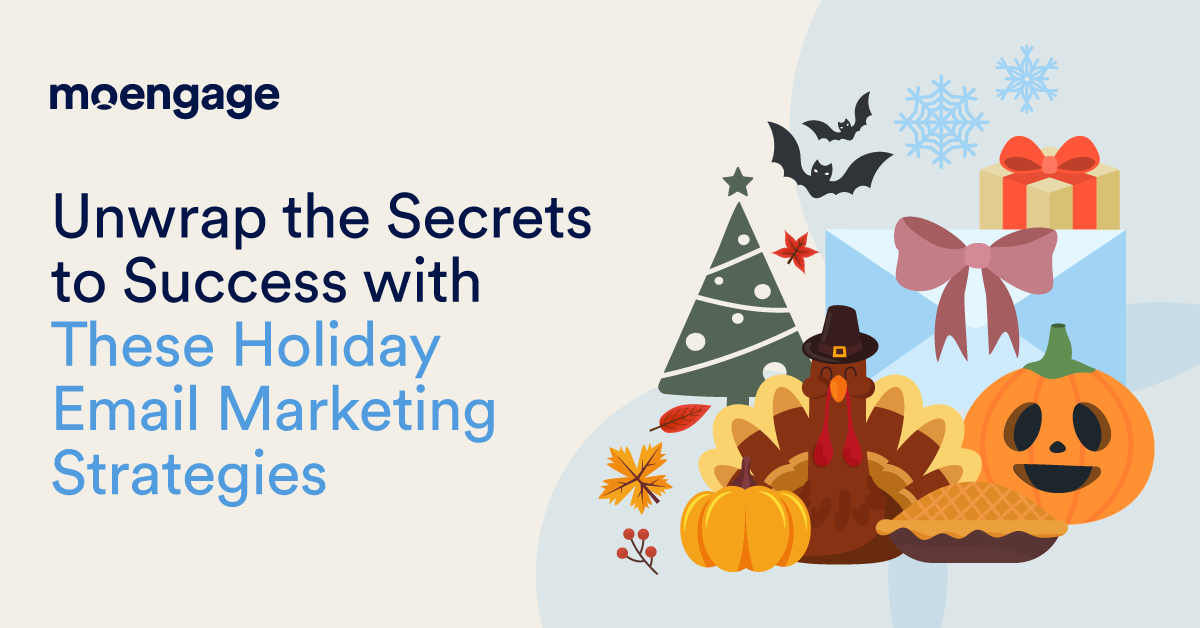
Reading Time: 20 minutes
Are you looking to increase sales with a robust holiday email marketing strategy this year?
The holiday season presents a significant opportunity to enhance customer engagement and drive revenue. However, the competition for attention in customers’ inboxes is fierce during this period.
This guide will equip you with the essential knowledge of holiday email marketing, including its importance, key dates for campaign deployment, and actionable strategies, accompanied by real-world examples of successful initiatives.
Why is Holiday Email Marketing in B2C Important?
Holiday email marketing in B2C is important because the holiday season is a critical time for B2C brands to target customers who seek holiday promotions. According to Deloitte’s holiday retail survey, 75% of holiday shoppers were interested in participating in promotional events in October and November 2024, up from 61% in 2023.
This opportunity is too valuable to ignore.
Many customers sign up for your emails in the hopes of receiving deals and promo codes during holidays. Because the holiday season extends from October to January, with some holidays sprinkled in July and September, customers can enjoy discounts for a long time.
Plus, customers who subscribe to your emails are more likely to buy your products than non-subscribers. So it’s a win-win situation for both parties, so long as you don’t make any holiday marketing mistakes.
Important Holiday Seasons to Consider for Email Marketing
Following holiday marketing trends for your emails can help you get a hang of how you should structure your campaigns around the holidays. But with so many holidays every year, the first step is to know what seasons you’ll want to market during (and target customers with emails). That’ll help you plan ahead for those holiday months.
This table will give you a rough idea of when you need to start your holiday email campaigns.
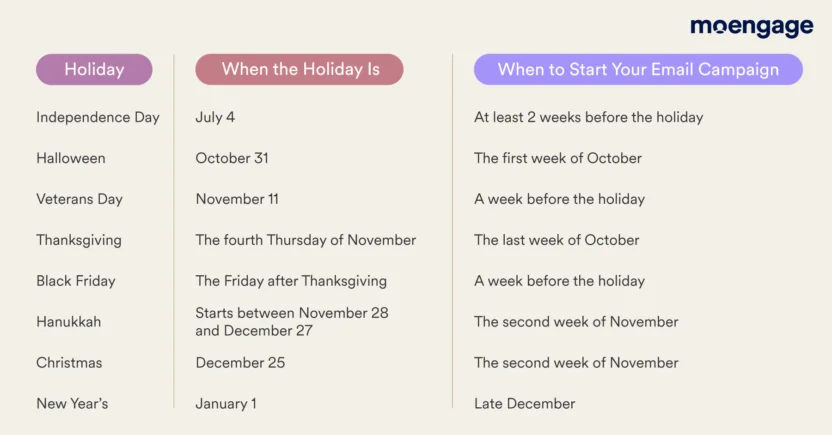
Let’s take a closer look at each of these holidays to understand why they’re important and what holiday email marketing tips you can follow.
Independence Day
July 4
Hot dogs, fireworks, parties, parades, burgers, picnics, trips, and cookouts are just some of the endless reasons why people love celebrating Independence Day.
You know what that means? Holiday email marketing opportunities for your brand are endless, too. No matter what products you sell, you can connect them to this holiday in your emails. Customers will have some use or the other for them while celebrating this holiday.
Now, let’s talk timing. For Independence Day campaigns, start your holiday email marketing prep in April, but don’t drag it beyond May. Begin lightly teasing your offers in mid to late June.
At this stage, focus on subtle reminders or pre-sale peeks that hint at what’s coming without overwhelming their inbox. Think “Summer is heating up with big savings soon!” Then, at least two weeks before July 4, ramp up your efforts with targeted, visually rich emails for your main offers or promotions.
For example, if you own a fashion brand, you can send an email to your customers suggesting new outfits they can wear to Independence Day parties or on trips. Start early with general email inspiration like “Here’s How to Celebrate July 4 in Style!” and end with time-sensitive CTAs: “Your outfit is just a click away. Grab it before the fireworks start!”
But the timing might differ across industries. If you’re in the food industry (e.g., grilling supplies), you’ll want to highlight recipes and product delivery timelines in late June, so customers can prepare well in time for their cookouts.
On the other hand, travel brands might start drip email campaigns months ahead, focusing on Independence Day vacation planning, followed by last-minute promotional offers for road trip gear or discounted staycations.
Halloween
October 31
Who’s there? The stairs just creaked in the middle of the night. But there’s no one in the house but you…
Did your hair stand on end? Customers love that feeling of mystery and fear at the same time.
Okay, let’s not go into the story of Halloween. But Americans did plan to spend over $11.5 billion on Halloween in 2024. Out of that, around $3.5 billion would be spent on trick-or-treat candy alone. That’s right, take note, candy brands.
It’s a gala for brands in the fashion, greeting cards, food, and entertainment industries. Oh, and don’t forget pumpkin farmers!
Halloween email marketing thrives on building anticipation and intrigue for the holiday. Start creating buzz in the first week of October with fun emails like “What’s brewing for Halloween? Find out soon!”
Challenge your customers’ imaginations with a teaser campaign before moving into heavier promotions during the final 1–2 weeks. These final weeks are the perfect time to spotlight limited-time deals, costume ideas, or themed products.
Create interactive “trick-or-treat” emails with scratch-to-reveal discounts or host polls like “Which monster wins this Halloween?” Layer this engagement early on, and as October 31 approaches, pivot to urgency with straight-up product pushes: “Last chance to spook-ify your Halloween!”
Even if you sell toilet paper, for instance, think of creative ways to associate it with Halloween. Maybe you can share graphics of mummy costumes created with your product. Seriously, there’s no end to Halloween marketing tricks and treats!
Veterans Day
November 11
Now, this is an emotional holiday that needs to be handled with great care.
In 2023, the government reported roughly 15.8 million military veterans across the country. They might include friends or family members of your customers. So, when thinking of holiday email marketing ideas, you need to understand that customers would be sensitive at this time.
When should you start your email marketing for Veterans Day? Unlike other holidays, this campaign works best with a shorter window — just a week in advance. An early campaign could promote awareness or gratitude initiatives, followed closely by emails offering discounts or charitable tie-ins as the holiday nears.
Your emails should show that you care about and respect the veterans. Send a thank-you email to show your gratitude. Or your email can also share pictures of how your team spent a day with a charity dedicated to veterans. Be sure to also remind customers that your campaign benefits a larger cause: “Every purchase helps support [charity/initiative name] for Veterans Day.”
Thanksgiving
Fourth Thursday in November
Thanksgiving is the most popular American holiday, according to YouGov’s polls. And you shouldn’t ignore that for your holiday email marketing.
This holiday is unique because the lead-up is everything. You’ll want to begin sending out emails in the last week of October by focusing on gratitude and slowly building trust.
For example, initial campaigns might include heartwarming customer testimonials or success stories about how your brand has made a difference. Final campaigns in the week of Thanksgiving should include hard-hitting promotions like limited-time sales and urgency-driven CTAs.
So, to ensure your campaign has enough time to run and is ready by the end of October, you should start creating your holiday emails in September itself.
Send heartwarming emails to your customers, thanking them for standing by your brand through thick and thin. And if you own a food brand, sharing Thanksgiving recipes in your emails is a great idea! Help your subscribers feel like part of a bigger celebration, and remind them that your products can make their Thanksgiving even better.
Black Friday
The First Friday after Thanksgiving
If we could get a dollar for every Black Friday deal that landed in our inboxes, we’d all be millionaires by now.
From exclusive Black Friday campaigns to limited-time deals, your emails can include all kinds of content for this holiday. But you know what? Every brand already does that. So why not try standing out from the crowd?
Timing is everything for Black Friday email marketing. Start building anticipation a week or two before the holiday with phrases like “What’s coming on Black Friday? Stay tuned!” Mid-November is the sweet spot for an aggressive push, ensuring you capitalize on early shoppers. And then, in the 24–48 hours before Black Friday, go all out with limited-time or flash sale email campaigns to create FOMO.
You can tie back your Black Friday discount to your brand’s community efforts in the emails, for instance. Or how about shooting your own short film named ‘Black Friday’ and sharing its poster in the email, featuring your products, like Peak Design did?
This email is a great example because it aligns brand storytelling with timely, memorable content. Pairing email campaigns with visuals that surprise and delight customers is what makes it all the more effective.

Source: https://reallygoodemails.com/emails/they-call-him-bird-legs
Hanukkah
Starts between November 28 and December 27
Hanukkah is a unique holiday in the email marketing calendar because of its eight-day celebration. This extended period gives you a golden opportunity to run sustained email campaigns that amplify engagement across multiple touchpoints. Add to that the fact that Hanukkah often overlaps with Christmas and other December festivities, and you’re looking at a diverse audience eager for holiday-themed promotions.
To make the most of Hanukkah, start your email campaigns in the second week of November, or at least three weeks before the holiday begins. The lead-up is an excellent time to build excitement with customers. For example, you can send pre-holiday emails sharing a sneak peek of an exclusive “Eight Nights, Eight Surprises” campaign.
Once Hanukkah begins, execute your strategy with daily emails or drip campaigns. Each email can reveal a new offer, product, or gift idea tied to the holiday theme.
For example:
- On Day 1, send an email sharing a heartfelt story related to Hanukkah, paired with an exclusive offer like “15% off sitewide, tonight only.”
- On Day 4, highlight a curated collection of holiday-themed items, perfect for hosting a Hanukkah dinner or gifting to loved ones.
- On Day 7, encourage last-minute shoppers to grab discounted gift cards, ensuring they have meaningful presents ready for later nights.
Tailor your emails with imagery and copy that resonates with the Hanukkah tradition, such as menorah lighting, dreidels, or festive family gatherings. For brands in the food industry, showcasing kosher options or recipes like sufganiyot (jelly-filled doughnuts) can create deeper cultural relevance.
Lastly, as the holiday overlaps with Christmas, don’t forget to carefully segment your email lists. Acknowledge that some customers may celebrate both holidays and emphasize inclusivity in your messaging. For instance, “Celebrating Together: Hanukkah and Christmas Gift Ideas” can cater to dual-celebratory households and expand your market reach.
Christmas
December 25
This is the holiday when brands bare their fangs and competition gets fiercest when running Christmas marketing campaigns. Emails with Christmas promotions and product giveaways flood customers’ inboxes.
In such a scenario, make sure your brand’s voice is heard. For that to happen, your holiday emails need to add value to your customers’ lives. But how? Well, how about targeting two kinds of customers — early shoppers and last-minute buyers?
Early Shoppers (the Second Week of November – Early December)
As Thanksgiving and Black Friday wind down, shift focus to early holiday shoppers, particularly fanatic gift givers. These customers are proactive and on the lookout for thoughtful ideas well before the holiday frenzy sets in.
Use this time to showcase gift bundles, personalized presents, and curated Christmas gift guides like “Top 10 Christmas Gifts for Your Sibling”. Create interactive emails that make gift browsing a joy, such as clickable guides or gamified gift finders (e.g., “Who’s on Your Nice List? Find the Perfect Gift!”).
The early pre-Christmas period is also a sweet spot for brands offering delivery services. Emails emphasizing fast and reliable delivery (e.g., “Gift Shop Right From Your Inbox!”) can resonate strongly here and help customers out in the shopping process.
Last-Minute Panic Buyers (Mid – Late December)
It’s true — some customers do wait until the final days to cross names off their gift list. For these shoppers, emphasize convenience and urgency, especially in the final 1–2 weeks before December 25.
Highlight digital gift cards in emails with CTAs like “Don’t Stress, Send a Gift in Seconds!” that show how easy it is to offer thoughtful presents at the very last minute. Promote deals on expedited shipping with clear deadlines for guaranteed Christmas delivery (“Order by Dec. 22 for Gifts Under the Tree!”). Countdown themes are also powerful for urgency, like “3 Days Left to Save Before Christmas!”
Make sure your email subject lines during this period scream urgent, using phrases like “Still Shopping? We’ve Got You!” or “Last-Minute Gifts to Save Your Holidays.”
No matter which customer segment you’re targeting here, creatively-timed email campaigns (e.g., late nights and early hours) might help you stand out.
New Year’s
January 1
New Year’s is a refreshingly optimistic holiday, and emails that tap into this hopefulness can build stronger customer connections. This season isn’t just about partying with champagne; it’s an opportunity for brands to inspire their audience and set the tone for the coming year.
The marketing timeline for New Year’s email marketing campaigns starts immediately after Christmas, around December 26. The week-long window is perfect for transitioning holiday-themed campaigns into forward-thinking, resolution-oriented themes. Your holiday email marketing strategy should aim to boost engagement, brand recognition, and long-term loyalty while offering irresistibly actionable CTAs.
Positive, thoughtful emails during this week capture customers’ attention and inspire them to buy from you or at least remember your brand. Here’s how you can structure your New Year’s email marketing throughout the week:
Countdown Email Campaigns (December 26 – 31)
These emails create anticipation leading up to midnight. Frame your message around looking ahead. Showcase redemption ideas like “End the Year Right — Our Gift to You: 20% Off” or an emotive message like “Countdown to the New Year: 5 Days to a Better You!”
For fitness, wellness, or productivity brands, this is the perfect time to tie emails to resolutions: promote must-have items that align with commonly set goals like fitness gear, planners, or self-care kits.
Warm Wishes and Celebration Emails (December 31 – January 1)
Send emails filled with celebratory tones like “Happy New Year from [Your Brand]!” and thank customers for their support over the past year. No heavy sales push here, just a relationship-building moment that keeps your brand top of mind.
Resolution-Driven Campaigns (January 1 – 3)
The early days of January are a peak opportunity for emails tied to fresh starts. Motivate customers with subject lines like:
- “Turn Your Resolutions into Results. Here’s How!”
- “2027 Resolutions? Make Them Happen with [Your Brand].”
These email campaigns can drive ROI by aligning your products with customers’ aspirations for the year ahead. Wellness brands, in particular, can use language that ties their offerings to self-improvement themes.
Getting in the holiday spirit already? ‘Tis the time to be merry and think of strategies to amp up your email marketing!
7 Holiday Email Marketing Strategies for Capturing Customer Attention
Without a strong holiday email marketing strategy, your campaigns will fall flat. No worries! If you’ve run out of ideas, here’s a list of seven strategies you can use to grow your email list during the holiday season.
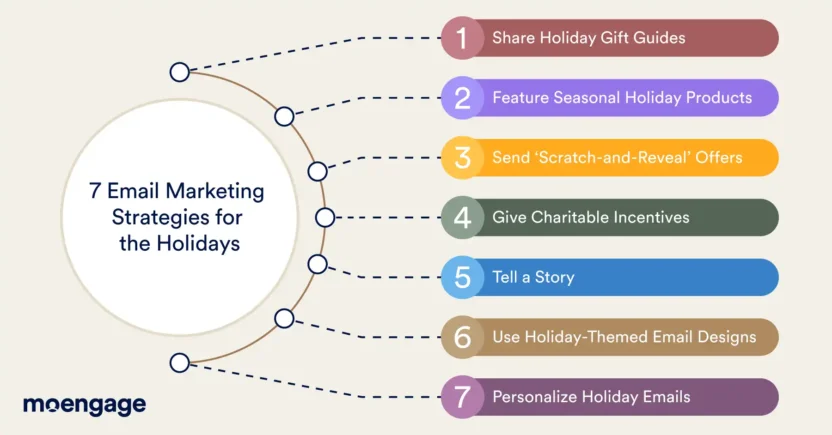
1. Share Holiday Gift Guides
Anybody who’s shopped for gifts knows how stressful it can be. Add to that the task of shopping for holiday gifts, and you’re going crazy before you know it. News flash: so are your customers.
For your holiday email marketing, your job is to make gift shopping easy for them. In short, be their Santa.
Think about those customers who always shop for holiday gifts at the last minute (maybe they’re too busy, or they forget, or they’re master procrastinators). A holiday gift guide tucked away inside your email would be a godsend for them. The guide can include tips, suggestions, and advice on the best gifts to buy for the holiday season.
Of course, the gifts need to be tied to your products and to the holiday. For instance, a Christmas gift guide that includes creepy ghoul face T-shirts?
Hit the red buzzer — beep.
With a guide to light their way, they don’t have to rack their brains on what to gift their loved ones. Your email just hands it all to them on a plate. All they need to do is choose from your list of gifts!
2. Feature Seasonal Holiday Products
This might seem like one of the clichéed holiday promotion ideas, we know. But it’s worth mentioning anyway.
Talking about products that are available only during the holiday season makes customers want to grab the products before anyone else does. It’s an old way of creating a sense of urgency among customers to push up your sales. So there’s no reason why you can’t incorporate this tactic into your holiday email marketing strategy, too.
Try sending emails listing animal head masks that are available only during Halloween. Or limited-time Christmas elf plush toys.
3. Send ‘Scratch-and-Reveal’ Offers
We still love scratching surfaces to reveal what’s hidden underneath. We’re not ashamed (is that a millennial thing?).
Anyhow, customers love it, too! Come to think of it, who could resist clicking a GIF or a link that mimics scratch cards in a holiday email?
Once they click it in the email, they can be directed to a landing page where the grand surprise is waiting to be revealed. This is your chance to offer surprises like ‘Free Shipping’ or ‘50% off Your Holiday Order’.
And BOOM! Your holiday email marketing campaign is now officially gamified. This playful experience is a great way to keep your customers engaged. You’ll be surprised at what else email marketing automation software can help you do.
4. Give Charitable Incentives
This is one of the most beautiful holiday marketing ideas for Ecommerce brands. Charitable initiatives seldom go unnoticed, especially during the holidays. With your holiday email marketing, you can incite in your customers feelings of compassion for the needy and the underprivileged, who deserve to celebrate the holidays just as much as customers do.
For example, in your holiday email, tell your customers that you’ll donate to their preferred charity for every order they place with your brand. Include a progress bar or numbers that indicate how much has already been donated, promoting community involvement.
5. Tell a Story
Is there anyone on earth who doesn’t love hearing stories? We don’t think so.
Stories are how people develop connections with each other. You can use the same tactic to send more engaging customer relationship emails during the holidays.
For example, share the story of your brand. Why it exists, how it was built, what it means to be a part of it, and so on. Sharing stories of your customers about how your products helped them during the holiday season is also a great way to connect with your email recipients.
6. Use Holiday-Themed Email Designs
Let’s say you’ve sent a red-and-green-themed email on the Fourth of July. Yeah, you’re going to hit a nerve there for the customers. They’ll be like, “Is this even real?”
When customers see emails (or anything, in fact) designed with the holiday colors, it automatically makes them associate the emails with the holiday. In turn, it somehow helps them feel even more connected to the holiday. And because it sparks an emotional connection, they’re more likely to read your email and buy your products.
For example, why not use orange, brown, and yellow color themes for your email banner image and CTAs during Thanksgiving? Or blue, red, and white for Independence Day? At the same time, ensure the creatives aren’t too far from your brand’s colors.
You can also add attention-grabbing images and holiday-related icons to your emails. Images and designs of ghosts and Jack-o’-lanterns would make your emails look spooky enough for Halloween, while New Year’s emails can include graphics of snowfall and glasses of champagne.
7. Personalize Holiday Emails
Adding customers’ first names in your subject lines makes them feel special, so they’re more likely to open the emails. But email personalization doesn’t end there. You need to dig deeper.
For your holiday email marketing strategy to really knock the ball out of the park, your segmentation should be on point. Have you segmented your email list based on the customers’ demographics, purchase history, email engagement, and other behavioral attributes? Have you carried out Recency, Frequency, and Monetary Value (RFM) segmentation?
It’s only when you segment your customers into different groups that you can personalize your holiday email campaigns for each segment. The more personalized your holiday emails are, the more attention they gain from your customers, and the more stuff they buy from your brand. For instance, you can target price-sensitive customers with holiday discounts and coupon codes.
6 Holiday Email Marketing Examples to Feast Your Eyes On
We don’t know about you, but we learn best through examples. Honestly, it helps you understand the nuances of each brand’s approach, and you can take away the holiday email marketing strategies that blew your mind.
These examples use intentional, data-driven tactics designed to engage, convert, and build brand loyalty. For each, we’ll not just focus on what’s in the email, but what strategies are in play and how they’re executed successfully. So, if you’re looking for inspiration or a cheat code for your next holiday email campaign, you’re in the right place.
Ready? Now, we’re going to slice and dice six examples of holiday emails that’ll make you nod your head and say, “Suh-weet!”
1. Brit + Co | Independence Day Picnic Email
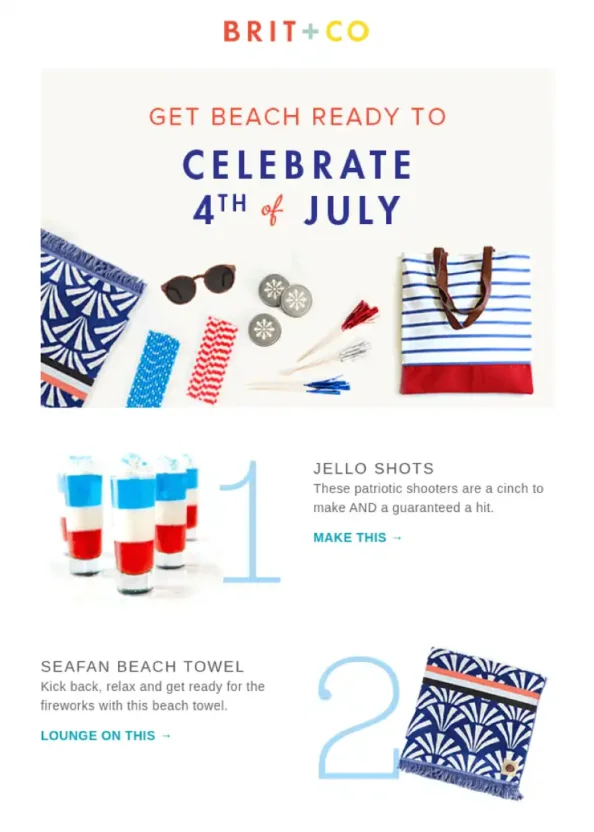
Source: https://reallygoodemails.com/emails/break-out-the-sparklers-its-time-for-a-4th-of-july-picnic
“Makes me melt like a popsicle on the Fourth of July.” With this line, Darla means Alfalfa in The Little Rascals. But we mean the above email from women’s lifestyle brand Brit + Co. Priorities (shrug).
Because this email from B + C does an excellent job of making their products feel fitting for the 4th of July. By tying everyday products like beach towels and tote bags to the holiday experience (e.g., picnics, fireworks, social media moments, and matching the American flag’s colors), they tap into customers’ desires to be holiday-ready. This strategy makes their audience view the products as essential purchases rather than luxuries.
You’ll also notice that the focus here isn’t “Buy our product.” Instead, it’s about helping customers achieve their desired outcomes. For instance, the CTAs like ‘Lounge on This’ (for a beach towel) or ‘Carry This’ (for a tote) personalize the customer experience and play into utility-driven language.
Plus, pairing visually engaging photos with curated product recommendations helps readers immediately imagine how they might use these products during Independence Day. For instance, calling a tie-dye placemat a must-have for BBQ essentials is genius. It’s a great example of embedding products into the emotional and functional aspects of celebrating a holiday.
2. Xumo | Interactive Halloween Email

Source: https://reallygoodemails.com/emails/whos-your-favorite-monster
Xumo’s Halloween email is a masterclass in fostering engagement-first experiences via gamification, personalization, and curiosity-driven interaction. It doesn’t just throw ‘spooky’ content at the reader; it actively involves them with structured email strategies designed to lure them toward the brand.
The subject line ‘Who’s your favorite monster?’ hints to the recipients that there might be a quiz inside the email. With this quiz, Xumo loops customers into a participatory experience, encouraging clicks instead of passive email consumption. The survey strategy isn’t just about fun; it collects valuable customer preferences. Knowing what monsters customers like means Xumo gathers behavioral data that can later inform curated Halloween movie suggestions or even broader customer segmentation.
Once the recipient votes, the CTA leads them deeper into Xumo’s offerings — a Halloween movie list tied to their chosen monster. This ensures follow-through customer engagement while increasing the time spent engaging with the brand’s content and services.
In short, Xumo makes the email a two-way conversation, making it fun, memorable, and shareable.
3. Dry Farm Wines | Thanksgiving Story Email

Source: https://emaillove.com/dry-farm-wines-email-design
An organic European wine brand headquartered in NYC, Dry Farm Wines goes beyond promotions to focus on narrative-driven marketing and emotional connection. Their Thanksgiving email strategy celebrates community values central to the holiday, creating a brand story that resonates deeply with their audience.
The email brings customers into the inner workings of the brand by highlighting Tiago, one of their artisan winemakers. Sharing behind-the-scenes stories that humanize the brand builds trust and creates relatability. Customers are no longer just buying wine; they’re supporting people and craftsmanship heading into the holidays.
The story complements the curated Thanksgiving wine collection, making the products feel intentional and aligned with the season (perfect for gifts or festive meals). Instead of aggressively selling, the email gently reminds readers of the brand’s offerings without disrupting the emotional narrative.
The takeaway from this example is to remember that Thanksgiving is a time to reflect on gratitude and give thanks. You can mimic this holiday email marketing strategy by weaving storytelling into your campaigns. For example, highlight team efforts, charitable partnerships, or customer testimonials that make your brand more human.
Tying emotion to action makes customers feel connected to people, not just things. The more connected they feel, the more likely they are to buy from your brand.
4. Brightland | Christmas Gift Guide
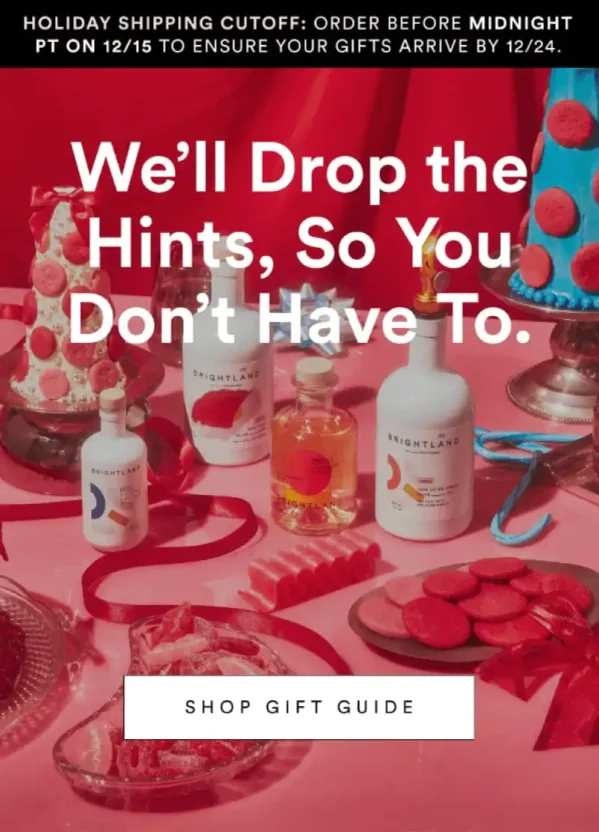
Source: https://reallygoodemails.com/emails/forward-this-to-your-significant-other
Brightland’s email cleverly integrates convenience-based selling and urgency, making it the ideal companion for a harried holiday shopper. It’s targeted, clear, and prioritizes simplicity — great email qualities during a customer’s busiest shopping season.
By offering a ready-made holiday gift guide, Brightland helps indecisive shoppers navigate one of the biggest pain points during Christmas: finding thoughtful yet convenient gifts. This strategy positions the brand as a problem-solver, taking the load off its customers.
The brand adds instructions about order deadlines to guarantee delivery before Christmas Eve. Tackling logistical worries (like delivery timelines) head-on ensures fewer abandoned carts.
Each featured product includes a brief description and an easy CTA. By making the path to purchase so seamless, Brightland encourages readers to act immediately rather than hesitate.
When recipients forward the email to others (as suggested within the email itself), the brand amplifies its reach organically. This is a clever example of holiday email marketing that wraps content, utility, and urgency into one easily digestible package.
5. Charity Water | Holiday Donation Email
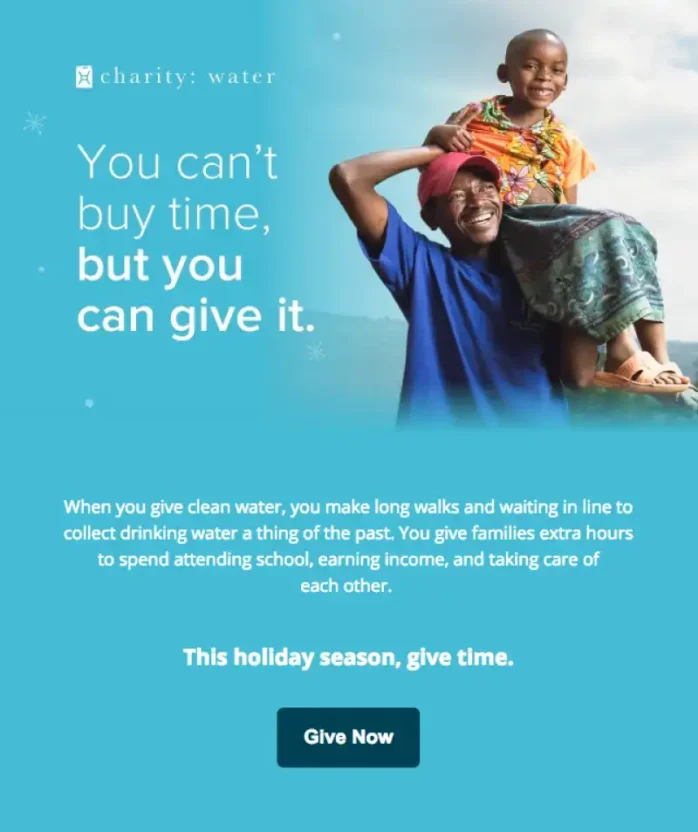
Source: https://reallygoodemails.com/emails/time-to-give
Charity Water’s email invites customers to make a significant difference during the holidays, using tactics that blend storytelling, impact visualization, and compelling CTAs. This example is a phenomenal holiday email marketing strategy for non-profits during the holiday season, as it aligns perfectly with the spirit of giving.
First of all, the combination of a profound, concise story with an empowering CTA (‘You can’t buy time, but you can give it’) hits both emotional and logical chords. It helps customers understand that even small contributions matter, while the bolded phrases make the email immediately relatable.
The email’s timing is spot-on, too. The holiday season is naturally charitable, so positioning donations as an act of kindness within this context drives response rates higher than at other times of the year.
This email stands out as an example of how brands can combine empathy with action while embracing a holiday-specific theme of giving back.
6. Wisconsin Cheese | Visually Appealing Email

Source: https://reallygoodemails.com/emails/happy-holidays-from-wisconsin-cheese
The most successful holiday marketing campaigns are the ones that don’t seem like they’re marketing at all.
You can see that Wisconsin Cheese’s email focuses heavily on creativity and aesthetics. There’s no overt promotional push.
Yet, the email maintains a holiday connection by playing with the word ‘Cheesings’ and transforming cheese into festive visuals (like snow, skating, or gingerbread-style homes). For larger repeat-purchase brands, this lightly clever email marketing strategy ensures customers think of them when considering holiday pairings or recipes.
Over the holidays, typical sales-focused emails flood inboxes. Wisconsin Cheese’s email stands out, as it focuses on nurturing goodwill and emotional connection by keeping the message celebratory, yet understated.
This is a strategic move for long-term branding and loyalty-building, especially for more established brands that rely on recurring seasonal purchases. Sometimes, less really is more.
Each of these holiday email marketing examples demonstrates the power of email marketing strategies tailored to the holiday context. From storytelling to gift guides and charity CTAs, the success of these campaigns lies in how intentional the messaging and formatting are.
Find more lessons from top holiday marketing campaigns here.
5 Best Holiday Email Marketing Subject Lines That Increase Open Rates
It’s no good dressing up your holiday emails with the most creative copy and designs if they aren’t being opened. That’s why the open rate is one of the key email marketing metrics.
Your subject line needs to change to improve the open rate. It’s the first thing customers see when your email lands in their inbox, so it’s got to be enticing enough for them to click on it and open the email. Which is why you should always keep handy a list of the best subject lines to boost open rates.
That said, we bring you 5 holiday email marketing subject lines that can make subscribers open your emails.
- Your Guide to a Delicious New Year’s Eve in Houston 🎉: It stands out from the standard ‘Happy New Year!’ and ‘Celebrate New Year with 20% Off’ emails.
- Wicked Weekend Dinners Are Brewing…🧛🏻♂️: On seeing this spooktacular subject line (not to mention the vampire emoji), customers understand the email is related to Halloween and contains some dinner recipes for the weekend to celebrate the holiday.
- ❄️Make Your Christmas Wishes Come True❄️: Kids grow up making wishes for Christmas. This subject line taps into those childhood memories by telling customers that their wishes would come true through, say, a 40% discount on jumpers.
- Every Bathroom Needs Us on Thanksgiving: This subject line is meant to make customers highly curious. When they learn that it’s a toilet paper brand, the subject line starts making sense.
- This July 4th, Enjoy Your Barbecue Minus the Small Talk: Introverts would make a run for this email like a shopping stampede at Walmart. After opening the email, they’d see the image of a pair of earphones.
These holiday email marketing strategies are all very well, but if they don’t follow legal guidelines, your email marketing campaigns will ultimately fail.
That’s why you need to learn…
How to Be GDPR and CCPA Compliant During the Holiday Season
As we’ve said before, many customers sign up for email lists near the holidays, hoping to receive deals and promo codes on products. Your brand needs to offer them an easy way out, so you must ensure you’re complying with the California Consumer Privacy Act (CCPA) and the General Data Protection Regulation (GDPR).
Let’s look at what the GDPR regulations mean for emails during the holidays:
- Did the contact specifically give your brand consent to send them emails?
- Did you ask for their consent in plain and clear language?
- Does your email feature products that the contact had consented to receive emails for?
- Do you periodically review your brand’s email retention policy?
- Does your email include a link to your Privacy Policy?
- Is it easy for your contacts to unsubscribe from your emails?
- Are there appropriate organizational and technical measures in place to uphold email security?
The CCPA compliance requirements for holiday email marketing are similar to those of the GDPR. The only difference is that the CCPA applies to brands in California, while GDPR affects those in the European Union.
Email Marketing During the Holidays: Next Steps
Holiday email marketing is different from standard email marketing because it’s a chance to show your customers you care about them during the festivities. That’s how you can keep them coming back for more.
Now, it’s time to launch your own holiday email marketing campaign. It gets faster and easier with an email marketing platform, like MoEngage, that lets you create and customize emails using a drag-and-drop builder. The platform would also come with a library of email templates you can choose from for your holiday emails.
Want to know how MoEngage can help you increase email conversions during the holidays? You have to see it in action, then.

